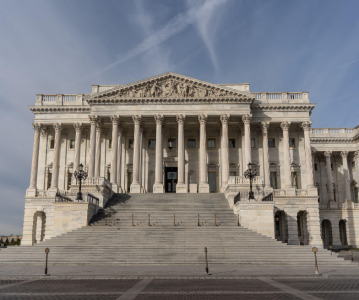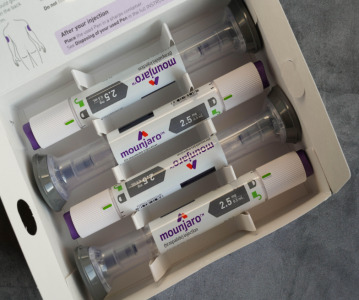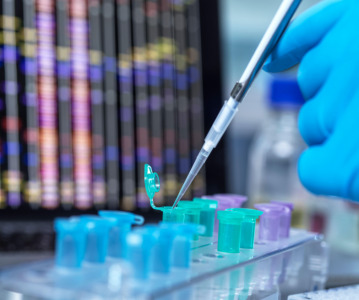Shire partner, Shionogi, submits NDA in Japan for ADHD treatment for children

With submission, Shire continues to strengthen its presence in Japan.
Shire and Shionogi & Co. have announced that Shionogi has submitted a New Drug Application (NDA) for the manufacturing and marketing in Japan of S-877503 (guanfacine hydrochloride prolonged release tablets), for the treatment of Attention-Deficit/Hyperactivity Disorder (ADHD) in children. The Japanese clinical studies were conducted in children 6 to 12 years old with this disorder.
Shire and Shionogi, under a co-development and commercialization licensing contract signed in 2011, have been developing S-877503 as an investigational pediatric ADHD candidate. Shionogi is a Japan-based pharmaceutical company focused on the research and development of treatments for various therapeutic areas, including central nervous system disorders and infectious diseases.
“This NDA is significant for patients, Shire and Shionogi. If approved, Shire will have another key product available in Japan, increasing patient access to more of our medicines in a market incredibly important on the world’s stage,” said Philip J. Vickers, Head of Research & Development, Shire. “Fortunately, we have a strong partner for our ADHD development and commercialization efforts in Shionogi, who has been central to our growth in Japan. Shire has a number of pipeline products, in addition to S-877503, intended for Japan, so we’re excited about the possibilities for addressing more unmet patient needs in this country.”
Shire Japan KK, Shire’s local operating company (LOC), also has investigational candidates in the pipeline for hereditary angioedema, short-bowel syndrome, convulsive seizures and hypoparathyroidism. The LOC offers two therapies of its own on the Japanese market — one for Gaucher disease and the other for thrombocythemia — and partners with several other companies to develop new products for the Japanese market.
New therapeutic options for ADHD are needed in Japan. Multiple medicines for the disorder are approved and sold in the United States and Europe. However, only two ADHD medicines have been approved in Japan, where the anticipated regulatory review process for an NDA is approximately 12 months.
Related News
-
News The next 15 drugs up for negotiation with Medicare include several blockbusters
By now, everyone is quite familiar with the drug price negotiations taking place between drug companies and the Centres for Medicare & Medicaid Services (CMS) in the USA as part of measures being taken to reduce the cost of drugs for patients, to make ... -
News PSCI Welcomes Delpharm, Samsung Biologics, and Suven as First Supplier Partners
The pharmaceutical industry continues to evolve with an increasing focus on responsible sourcing, sustainability, and collaboration across the supply chain. Under a new model to recognise suppliers within the pharmaceutical and healthcare industry that... -
News Drug prices agreed upon as part of the US Inflation Reduction Act
The Inflation Reduction Act brought into constitution by the Biden administation in 2022, which proposed a drug price negotiation between the government and pharmaceutical companies, has reached it's first agreement. -
News Eisai Alzheimer’s drug authorised in UK but still faces obstacles
In partnership with BioArctic AB, pharmaceutical company Eisai has been granted Marketing Authorisation by the Medicines and Healthcare products Regulatory Agency (MHRA) for its Alzheimer’s disease drug product Leqembi. -
News Eli Lilly's weight loss drugs removed from the FDA's shortage list
The US FDA have recently updated their drug shortage list. The recently released list shows that all dosage forms of Eli Lilly's weight-loss drug Zepbound and their diabetes drug Mounjaro are now available. -
News Global advancements in the diagnosis and treatment of rare diseases: Rare Disease Day 2024
Rare Diseases Day is celebrated on the 29th February 2024 and represents the plight of rare disease patients to gain diagnosis and access to suitable treatment. -
News Pharmaceutical industry supports COP28 health stance in joint statement
As COP28 takes place over this week in Dubai, UAE, several bodies in the pharmaceutical and health industries have come together to announce support of key movements in sustainability in the sector, and to recognise sustainability as a health issue.&nb... -
News Biden backs Cold-War measures to shore-up medical supply chains
In a recent strategy to combat rising inflation and the cost of living crisis, President Joe Biden has invoked a Cold War-era act to increase investment in a selection of medicines and supplies.
Recently Visited
Position your company at the heart of the global Pharma industry with a CPHI Online membership
-
Your products and solutions visible to thousands of visitors within the largest Pharma marketplace
-
Generate high-quality, engaged leads for your business, all year round
-
Promote your business as the industry’s thought-leader by hosting your reports, brochures and videos within your profile
-
Your company’s profile boosted at all participating CPHI events
-
An easy-to-use platform with a detailed dashboard showing your leads and performance



.png)



